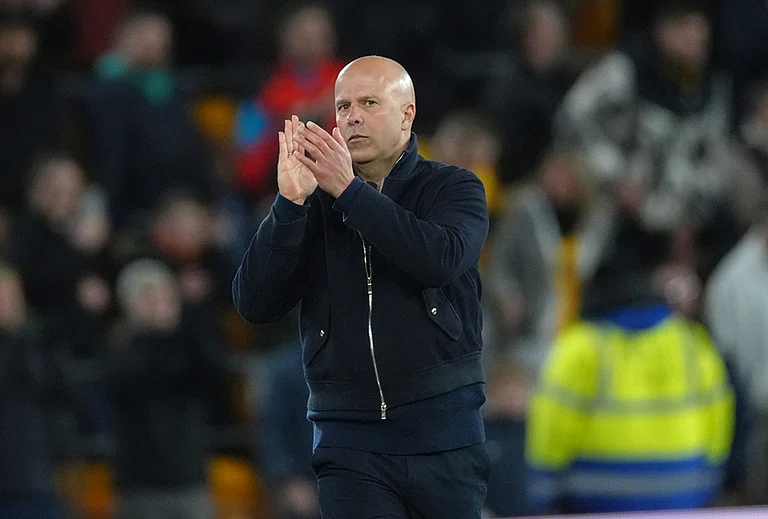I was in Kiev last year as part of my European tour to attend the International Yoga Day celebrations organised by the Indian embassy. At the dinner hosted by the Indian ambassador, I was told that around 15,000 Indian medical students were studying in Ukraine. I was curious about the teachers and to my surprise, I found that maximum faculty members came from India. I had observed a similar scenario in Mauritius, where both students and faculty of the local medical college were from India. I have closely observed prestigious business and technical schools around the world and have found that besides the top leadership, there is a substantial number of Indian students and faculty in almost all Ivy League schools. I must admit that I have been deeply impressed by the quality of research conducted by Indian students and faculty in international institutions.
It was a mere coincidence that after our European tour, I visited the Indian School of Business (ISB) in Hyderabad. The Wall Street Journal/Times Higher Education Global Rankings have ranked ISB Hyderabad at No. 2 globally for the one-year MBA course. Hong Kong University (HKU) is ranked No. 1. I was wondering in what dimensions ISB lagged. To my surprise, ISB performed far better in every aspect—resources (faculty, students and their qualifications; student career support), engagement (learning, real-world relevance, research), outcomes (salary increase, network, opportunities). But ISB was behind HKU in environment—foreign students, female students and staff (including international staff). One thing is clear that as far as the quality of our teachers and students is concerned, we are second to none. I strongly believe we have the capacity to lead the world. However, our institutions are comparatively far behind international institutions.
On June 19, QS Global Education Group released a new ranking order of universities worldwide in London, which includes 1,000 universities in 82 countries. This year Massachusetts Institute of Technology (MIT) retained the top spot as the world’s best university. MIT has been at the top for eight successive years. As far as India is concerned, IIT Mumbai has been included among the 152 best in the rankings, followed by IIT Delhi at 182 and IISc Bangalore at 184. India has 23 institutions in the top 1,000. The performance of Chinese mainland universities in the new rankings has been better than us.
I keep wondering why Indian universities, including some such as JNU, BHU and DU that fare well in national rankings, do not show up in the global standing. Again the question arises, why do we continuously fail at the international level? The major challenge is that right from school to higher education, we have been trained to focus on remembering, understanding and reproducing. However, international rankings lay more stress on independent thinking, innovation, problem-solving, publication and hardcore research. Another issue is that our research publications are confined to low-impact journals. We are suffering because of the lack of suitable infrastructure and a large number of vacancies in our educational institutions. I have seen that there is a lack of awareness regarding intellectual property rights and a lot needs to be done on this front.
Under the leadership of our able Prime Minister, we are moving ahead to make our institutions globally competitive. Once implemented, the new education policy will definitely transform India’s education system to one of the best in the world. The new education policy seeks systemic transformation of India’s education sector to make it globally competitive. In order to receive suggestions from all stakeholders, the date of receiving suggestions has been extended to July 31. We are focussing on creating an open, innovative environment with a spotlight on learning outcomes. The recent record budget enhancement for research and development activities and creation of the National Research Foundation (under the chairmanship of the Prime Minister) will go a long way in creating an environment to support innovation, research and development.
One of the requirements of ranking organisations is that we should have a diverse campus with a sizeable presence of foreign students and teachers. This is very difficult for a developing nation like India. India is a subcontinent. I think if someone from Arunachal Pradesh or Uttarakhand is studying in Bangalore, that should be considered a diverse campus. It’s very heartening to note that the government is trying to strengthen the Study in India programme, which aims to make the country an attractive destination for foreign students. We need to craft an effective strategy at the institution level with time-bound implementation plans to attract international students.
Research is the only field through which Indian institutes can improve their global rankings owing to the huge capacity of Indian institutions and the socio-geographical context. Recently, at my meeting with ranking organisations, I stressed that all institutions are not homogeneous when it comes to teaching, research and outreach programmes. Consequently, applying universal standards to them is not justified.
The majority of our ranking systems such as The Times World University Ranking, QS World University Ranking, Academic Ranking of World Universities, and Webometrics depend solely on the core mission of the university such as teaching, research, knowledge transfer, and international acceptance. However, I categorically told them that India, being a subcontinent, is unique in its own ways. When talking about India, we have to consider the role of the university in promoting social and economic inclusion. We have to worry about ensuring social justice and nurturing a democratic ethos, which is so important to strengthen the social fabric of our country. An indicator relating to social responsibility should be included.
I strongly believe that with active support from the government, industry innovation will be fused with research activities in our institutions and boost the research culture. I am sure we will be able to realign and redesign our higher education to impart skills and expertise to students and meet global and local economic demands. The good work done by our institutions will be replicated elsewhere. Institutions are being encouraged to have a strong focus on innovative pedagogical methods.
It’s heartening to note that in spite of the challenges faced by Indian universities, some have succeeded in adopting global features and have shown remarkable improvement. On the Prime Minister’s watch, the HRD ministry has prepared the Education Quality Improvement and Inclusion Programme to improve technical education in the country. This will improve the standard of education and research.
While focussing on improving their rankings, our institutions should work on making higher education more accessible, inclusive and socially relevant, and strive to achieve excellence. For our part, we are sincerely attempting to sensitise ranking organisations to be more inclusive. I am sure co-ordinated efforts by all stakeholders will make our institutions strategically competitive and propel India into a trajectory towards becoming a world leader.
Also Read
Ramesh Pokhriyal, Union Human Resource Development Minister


















